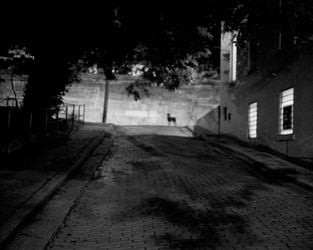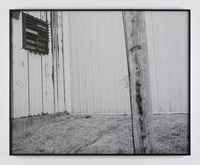
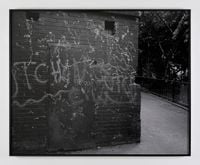
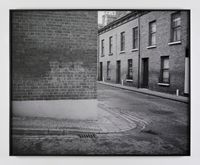
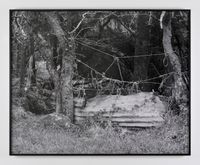
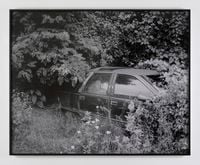
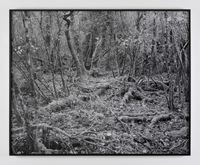
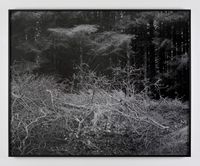
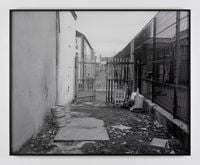
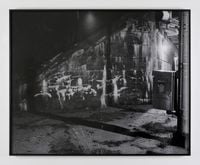

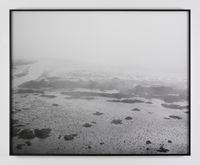
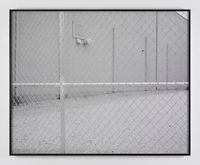
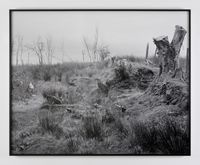
In this most recent series, Willie Doherty's starkly atmospheric images reveal the residual traces that mark the surfaces and fabric of natural and built environments. Places that have been formed by the long slow processes of geological time and that have been shaped by the consequences of human intervention: conflict, inequality, neglect, and injustice.
These are works that are characterised by Doherty's watchful reticent intensity, and by his assertion that the image cannot be fixed, cannot be fully comprehended and known. His attention draws us to the small details and nuances of diverse spaces, the materiality of brick, concrete, metal, grass, trees, and wildflowers. There is an unsettled, restless sense of place. Everywhere there are indications of disorder, breakdown, and failure coexistent with signs of growth, recovery, and endurance.
Poetry is found in the most reluctant of places. The brutality of decay transforms into a still and silent beauty, the ambiguity of oppositions yielding to a serene resoluteness existing between somewhere and nowhere. Unfamiliarity is exposed in familiar territory, as disregarded landscapes are no longer forgotten, their histories becoming the fictions of memory.
The passage of time, and the eventual erasure of all traces, pervades these images through the uneasy quiescence between what was and what is, what is and is not. In Doherty's work, the sublime is determinate, the ignored no longer unseen.
Press release courtesy Kerlin Gallery.
Anne's Lane
South Anne Street
Dublin, D02 A028
Ireland
www.kerlin.ie
+35 316 709 093
Tues - Fri, 10am - 5.30pm
Sat, 11am - 4.30pm
